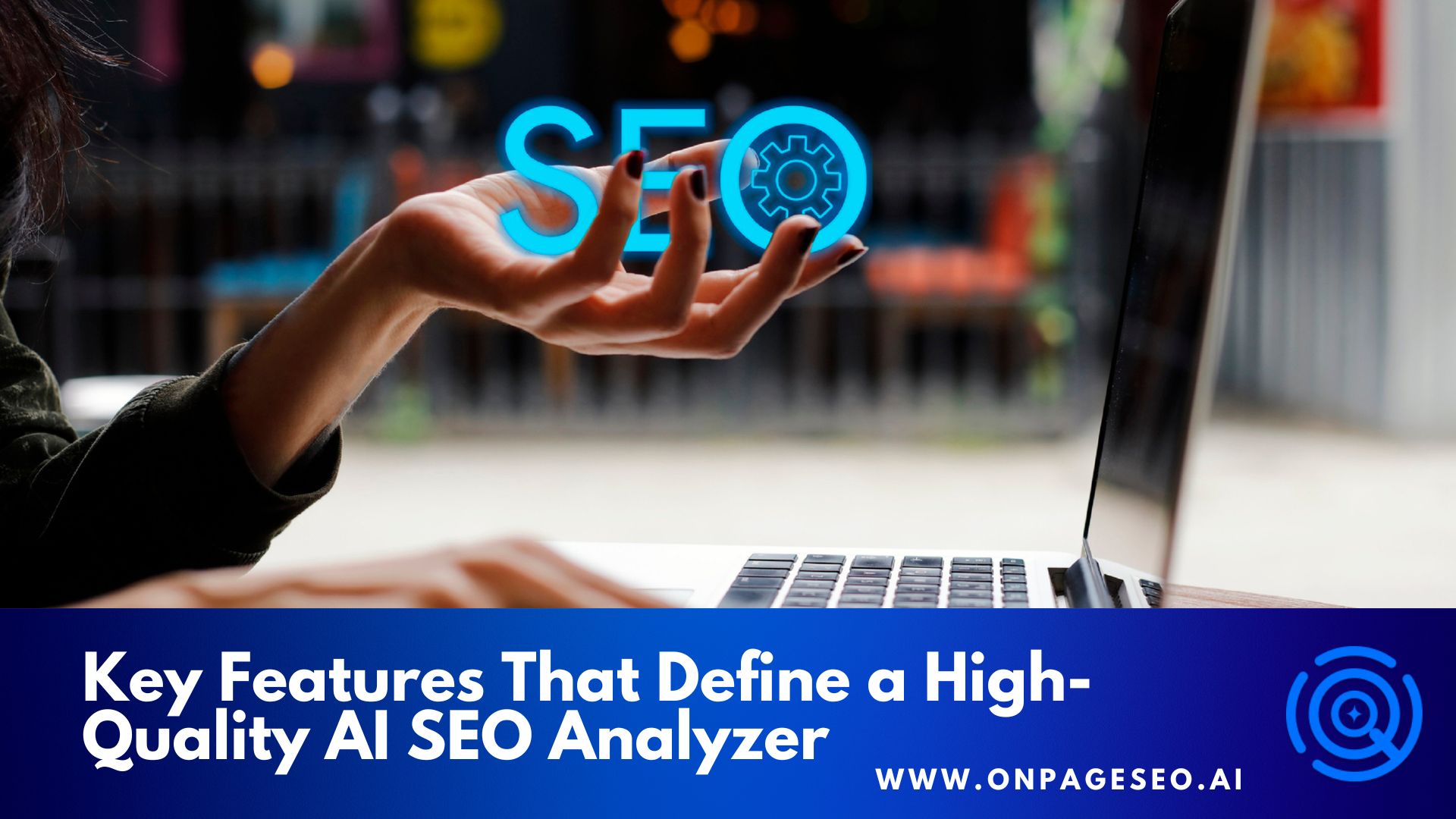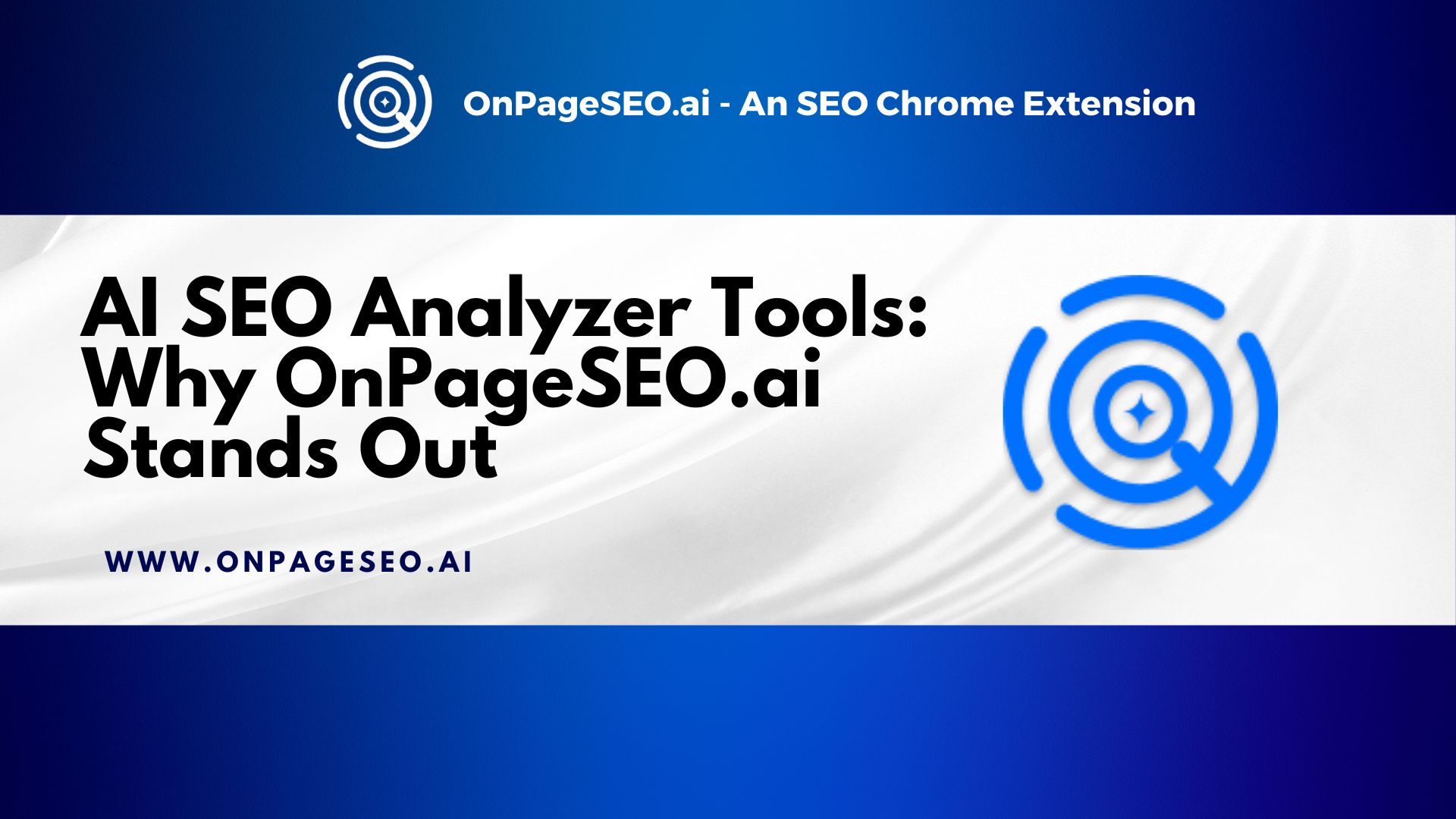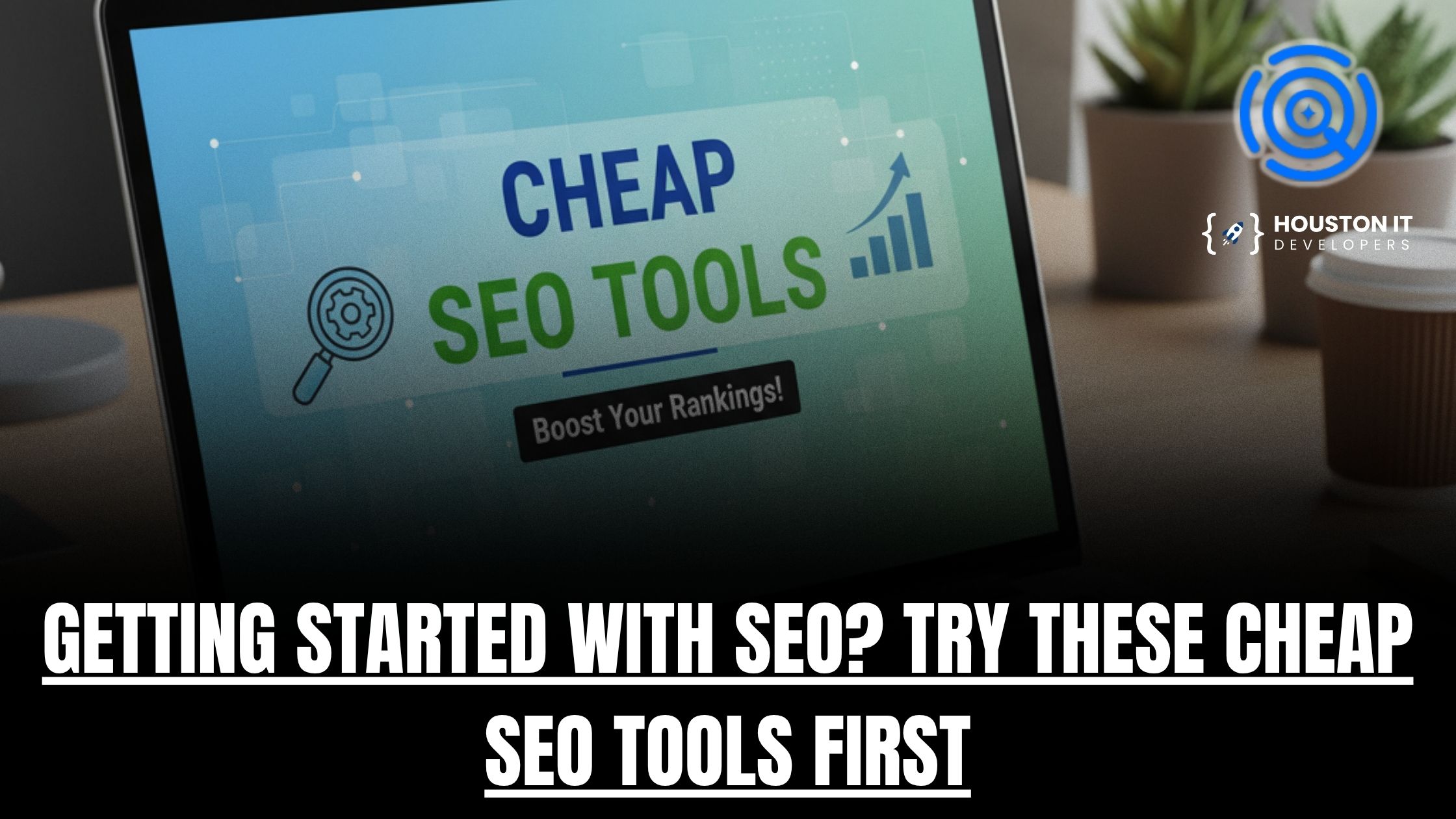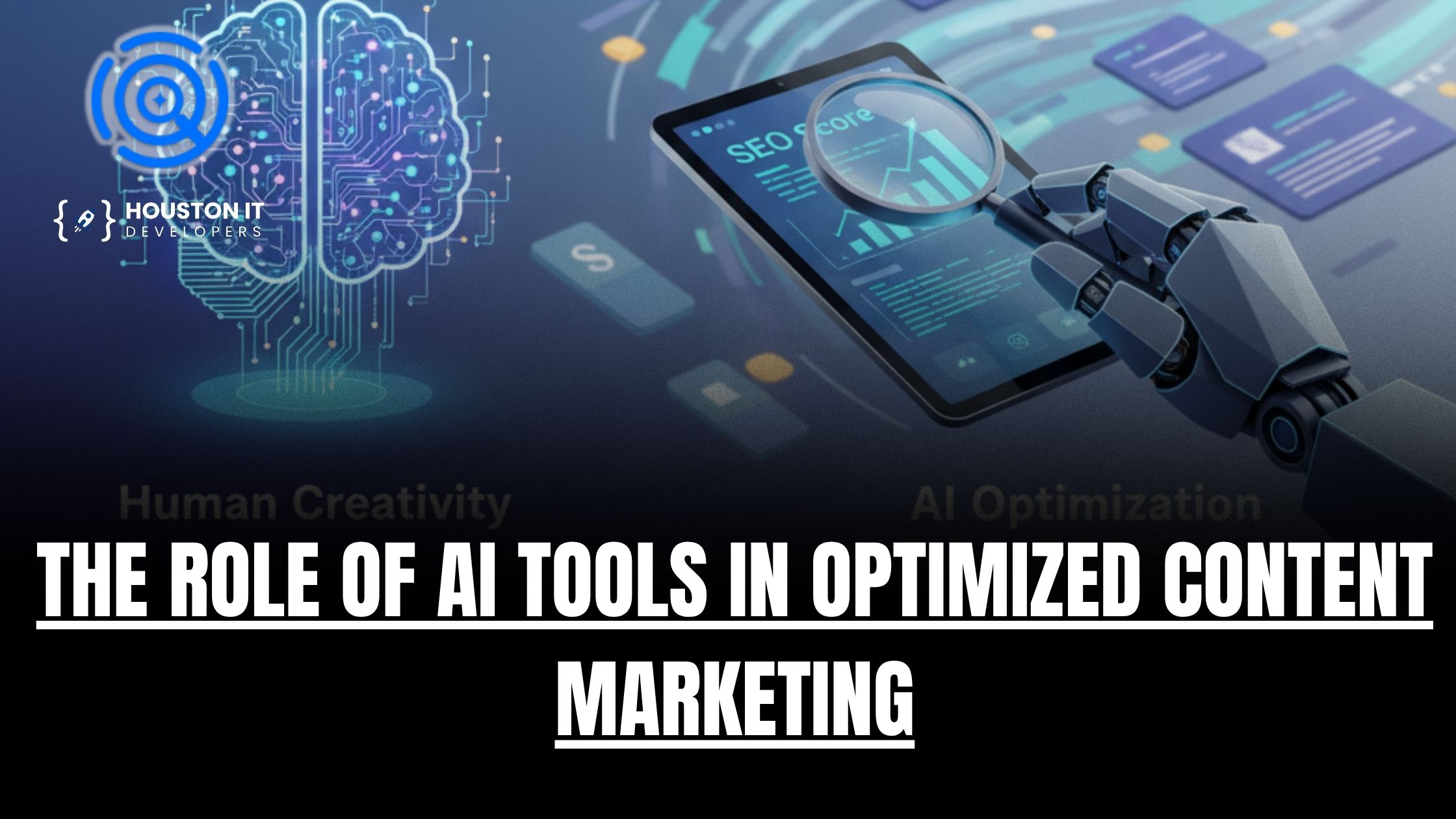Are you struggling to get your content noticed by search engines? You’re not alone. With 68% of all online experiences starting with a search engine and only 0.63% of users clicking beyond page one, ranking well has never been more critical or more competitive. An AI SEO analyzer can change the game by helping you optimize smarter and faster, but not all tools are created equal.
Here’s the problem: many so-called intelligent platforms lack accuracy, overwhelm users with data, or miss context entirely. If you’ve tried an online SEO analyzer or SEO analyzer tool and still aren’t seeing results, you need a solution that’s both powerful and practical.
In this blog post, we’ll break down how AI SEO analyzers work, what features matter most, and why OnPageSEO.ai stands out. Whether you’re after a free on page SEO analysis or looking to scale your strategy, this guide will help you make the right choice.
What Is an AI SEO Analyzer and How Does It Work?
An AI SEO analyzer uses artificial intelligence and machine learning algorithms to evaluate and optimize web content for search engines. Unlike traditional tools, which rely on rigid rule sets or basic metrics, AI-driven platforms adapt in real-time, process massive amounts of data, and make context-aware suggestions tailored to both human readers and search engine bots.
At its core, an AI SEO analyzer performs free on page SEO analysis, scanning each element of a page from metadata and keyword density to internal links and schema markup. It detects structural issues, flags duplicate content, and even benchmarks your content against top-ranking pages. More advanced tools go further, offering natural language processing (NLP) capabilities to ensure your content aligns with user intent and semantic search trends.
The rise of AI SEO analysis is particularly beneficial for solopreneurs, small businesses, and content agencies who need a cost-effective alternative to hiring full-time SEO specialists. With just a few clicks, an online SEO analyzer powered by AI can offer personalized, data-backed optimization strategies.
Key Features That Define a High-Quality AI SEO Analyzer

Not all SEO tools are created with the same level of intelligence or usability. The best AI SEO analyzer tools go far beyond surface-level audits and keyword density checks. They harness machine learning, natural language processing, and real-time data to provide precise, actionable insights that directly improve your content’s chances of ranking.
If you’re evaluating an online SEO analyzer or a full-scale SEO analyzer tool, these are the specific, high-impact features to look for:
Content Scoring Based on Real-Time SERP Data
A high-quality AI SEO analyzer doesn’t just scan your page in isolation. It benchmarks your content against the top-performing pages currently ranking for your target keywords. This real-time SERP comparison gives context to your optimization efforts, helping you understand where you fall short and what top pages are doing better.
Unlike traditional tools that rely on outdated or static scoring models, the best analyzers incorporate live search data, factoring in things like content length, semantic coverage, keyword usage, heading structure, and link depth. This dynamic analysis ensures that your content is not only optimized technically but also aligned with what’s currently ranking in Google.
Semantic Keyword Integration and NLP Optimization
Top-performing AI SEO analyzer tools use natural language processing (NLP) to understand the intent behind your content and align it with the expectations of search engines. Instead of just flagging missing exact-match keywords, they surface related terms, known as LSI (latent semantic indexing) keywords, and recommend where and how to integrate them naturally.
This semantic analysis ensures that your content doesn’t just hit keywords. It answers real user questions, satisfies intent, and reads like it was written for humans, not algorithms. A great tool also helps you optimize entity usage, which is key to improving visibility for voice search and featured snippets.
Actionable Recommendations with Clear Prioritization
An effective SEO analyzer tool doesn’t overwhelm users with a laundry list of technical suggestions. Instead, it prioritizes recommendations based on impact and urgency. High-quality AI tools organize issues into categories, such as technical, content, and user experience, and rank them according to how much they influence your ranking potential.
For example, they may flag that you’re missing an H1 tag or that your page loads too slowly on mobile, but they’ll also tell you which fix is more important to address first. This structured, data-backed prioritization enables you to move quickly and efficiently, especially valuable for smaller teams or solo marketers.
User Experience and Mobile Optimization Checks
With search engines like Google increasingly prioritizing user experience in their ranking algorithms, AI SEO analyzer tools must go beyond content analysis and address how your site feels to users. Google’s Core Web Vitals, metrics like Largest Contentful Paint (LCP), Cumulative Layout Shift (CLS), and Time to Interactive (TTI), play a direct role in determining if your site is optimized not just for bots, but for real people.
An advanced SEO analyzer tool integrates UX and performance data, evaluating how quickly your pages load, how stable they appear during rendering, and how soon users can interact with them. These insights help identify issues that degrade the experience, such as sluggish mobile load speeds or jarring layout shifts.
Mobile optimization is equally crucial. Since mobile-first indexing is now standard, even a free on page SEO analysis should assess responsiveness across screen sizes, spot elements that are difficult to tap, and detect styling problems that frustrate users on phones and tablets.
Below is a breakdown of the key UX and mobile metrics a high-quality online SEO analyzer should evaluate:
| UX Factor | What It Measures | Why It Matters |
| Largest Contentful Paint (LCP) | Time it takes for the main content to load | A slow LCP can signal poor performance and increase bounce rates |
| Cumulative Layout Shift (CLS) | How much page elements shift while loading | High CLS results in accidental clicks and a frustrating experience |
| Time to Interactive (TTI) | Time until the page is fully usable | Long TTI delays user engagement and can harm conversions |
| Mobile Responsiveness | How well content adapts to different screen sizes | Non-responsive pages are penalized in mobile rankings |
| Tap Target Size | Whether clickable elements are easy to tap on smaller screens | Small tap targets lead to user errors and lower satisfaction |
| Font Legibility | Whether text is readable without zooming | Poor readability discourages users from staying or interacting |
| 4G Load Performance | How the site loads under typical mobile data conditions | Sites that lag on mobile networks are likely to see higher abandonment rates |
The best AI SEO analyzers provide real-time diagnostics and actionable fixes for these issues, ensuring your content not only ranks but delivers a seamless, fast, and mobile-friendly experience to every visitor.
Internal Linking and Schema Suggestions
Internal links are essential for SEO, yet many tools overlook them. A top-tier AI SEO analyzer will audit your internal link structure and suggest where to insert contextual links to related pages. This improves both crawlability and content discoverability.
Moreover, schema markup is increasingly important for enhancing visibility in rich results. Whether it’s for articles, products, FAQs, or events, your SEO tool should recommend schema types and highlight opportunities to implement structured data. This boosts your chance of earning features like review stars, sitelinks, and “People Also Ask” listings.
Integration with Writing Tools and CMS
Your free on page SEO analysis tool shouldn’t disrupt your workflow. It should fit right into it. High-quality AI platforms now offer integrations with popular writing and publishing tools like Google Docs, WordPress, and even Chrome extensions.
This allows you to apply SEO recommendations directly within your writing environment. For instance, OnPageSEO.ai offers an in-browser SEO overlay, providing instant feedback without requiring users to copy and paste content into a separate dashboard. The ability to analyze and implement changes in real time reduces friction and ensures you never miss an optimization opportunity before publishing.
A well-designed AI SEO analyzer empowers content creators, marketers, and site owners to act with precision and confidence. From real-time SERP scoring to NLP-powered keyword guidance, the features above separate true intelligence from basic automation.
As you evaluate your next SEO analyzer tool or online SEO analyzer, keep these capabilities in mind. They’re the foundation of sustainable, high-ranking content. For a practical walkthrough on getting started, see on page SEO audit for beginners how to do it step by step.
How OnPageSEO.ai Compares to Other Tools

While many SEO analyzers, like Surfer SEO and Clearscope offer robust features, the OnPageSEO.ai Chrome extension stands out for its real-time accessibility, focused on-page insights, and affordability. Here’s how it stacks up:
- Instant On-Page SEO Audits, Built for Chrome – Unlike traditional tools that require you to copy content into dashboards, OnPageSEO.ai offers one-click SEO health checks directly on live pages and Google Docs via its Chrome Extension. This makes it ideal for fast, in-context optimisation.
- AI-Driven Meta Tags Without a Paywall – Most platforms lock meta tag generation behind premium plans. OnPageSEO.ai includes an AI-powered title and meta description generator.
- Focused Header Structure Analysis – Instead of bundling in unrelated features, OnPageSEO.ai zeroes in on content hierarchy. It maps your H1 – H6 structure, flags issues, and lets you jump directly to headers for fast editing and clean markup.
- Comprehensive Link Audits with Visual Cues – While others bury link data in spreadsheets, OnPageSEO.ai offers real-time internal/external link insights with colour-coded anchor text categorisation so you can fix issues without digging through code.
- Built-In Image SEO Tools – Other tools overlook visual optimisation. OnPageSEO.ai audits alt texts, file types, and titles.
- Keyword Analysis Without Guesswork – It tracks keyword frequency, density, and word count, lets you filter phrases by length or count, and exports data to CSV. This helps identify underused or overused terms at a glance.
- Generous Free Plan, Simple Upgrade Path – Many SEO platforms restrict core features in trial versions. OnPageSEO.ai’s free plan includes page audits, link analysis, header checks, and basic GSC insights. It’s perfect for freelancers and small teams. The Pro plan unlocks unlimited AI tools and future updates for just $4.99/month.
In side-by-side use, OnPageSEO.ai consistently delivers faster, clearer, and more actionable on-page SEO recommendations. This is ideal for creators who don’t want to wade through cluttered dashboards. For a closer look at how it uncovers key ranking elements, check out this guide on how to find SEO entities with AI tools.
FAQs
Is there an AI tool for SEO?
Yes. AI tools for SEO use machine learning and natural language processing to automate tasks like content analysis, keyword research, SERP tracking, and on-page audits. Tools like OnPageSEO.ai help users optimise their pages with real-time insights, saving time and improving ranking accuracy.
What is the best AI agent for SEO?
The best AI agent depends on your needs. For on-page optimization, OnPageSEO.ai stands out with features like real-time content scoring, AI-generated meta tags, and structured SEO audits directly inside your browser—making it ideal for content creators and marketers who want fast, data-driven recommendations.
What is the best SEO checker tool?
Top SEO checker tools include OnPageSEO.ai, Screaming Frog, and Ahrefs. OnPageSEO.ai is especially effective for analysing technical and content SEO in one click, with colour-coded suggestions and AI-powered guidance. It’s a lightweight, browser-based tool that’s ideal for fast audits without overwhelming reports.
Final Thoughts on AI SEO Analyzer Tools
In today’s competitive digital landscape, AI SEO analyzer tools are essential for optimizing content and boosting search engine rankings. OnPageSEO.ai Chrome extension stands out with its real-time audits, AI-driven meta tag generation, focused header analysis, and comprehensive link and image optimization. Its generous free plan and affordable Pro upgrade make it ideal for solopreneurs, small businesses, and marketers seeking actionable insights without complexity. Unlike other tools, OnPageSEO.ai integrates seamlessly into your workflow, delivering precise, context-aware recommendations to enhance both user experience and SERP performance.
Ready to elevate your SEO game? Take control of your content’s ranking potential today. Sign up for OnPageSEO.ai’s free plan and download the Chrome extension to start optimizing in one click.
Don’t let your content get lost on page two. Try OnPageSEO.ai now and see the difference smarter, faster SEO makes!



